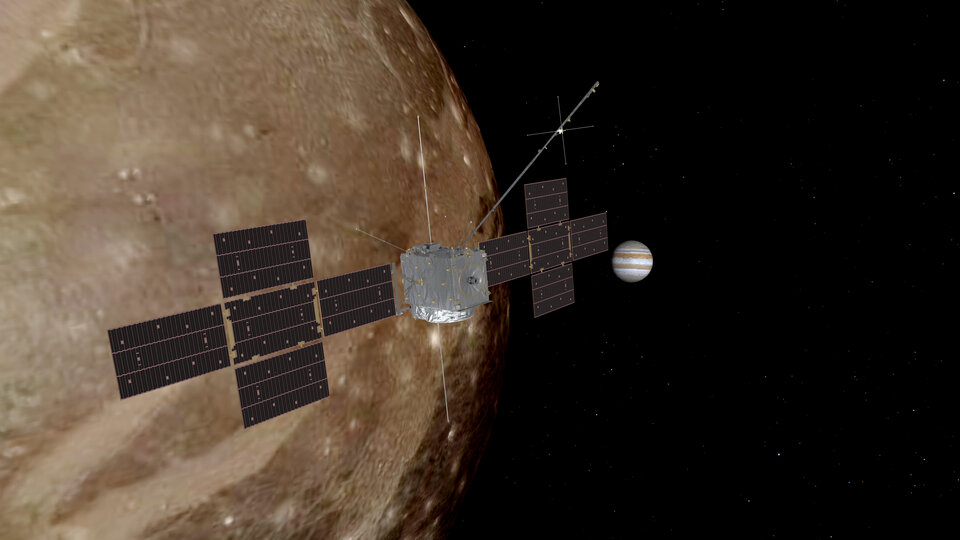European Space Agency Launches Mission to Jupiter's Icy Moons
The European Space Agency (ESA) successfully launched its 'Jupiter Icy Moons Explorer' (Juice) mission on an Ariane 5 rocket launched from French Guiana on Friday. The liftoff marks the start of a trek to explore the oceans on Jupiter's icy moons....

0:00
/0:00
Facts
- The European Space Agency (ESA) successfully launched its 'Jupiter Icy Moons Explorer' (Juice) mission on an Ariane 5 rocket launched from French Guiana on Friday. The liftoff marks the start of a trek to explore the oceans on Jupiter's icy moons.1
- On Thursday, the ESA abruptly postponed the launch due to lightning risks at the launch site in Kourou, French Guiana.2
- This is the first instance that Europe will send a mission past Mars into the outer Solar System.3
- Juice will fly by Earth and Venus on its eight-year journey to Jupiter, where it will make close encounters with multiple ice-covered moons — Callisto, Europa, and Ganymede — to assess chances of life either in the past or present.4
- This €1.6B mission comes at a time of crisis for Europe's launchers, which have been practically deprived of autonomous access to space as Russian Soyuz rockets departed from Kourou, the Ariane 6 has been delayed, and the first commercial flight of Vega C failed.5
- Meanwhile, NASA's Europa Clipper mission is planned to be launched next year to reach Jupiter in April 2030, where it will conduct roughly 50 flybys of Europa.6
Sources: 1Esa, 2BBC News, 3Rfi, 4Sky news, 5Euronews and 6CNN.
Narratives
- Narrative A, as provided by Spectator (UK). The European space program has been a bureaucracy-made disaster as billions of taxpayer money have been diverted to the institutional grandiosity of the obsolete ESA rather than to technical developments. This has left the organization lagging even behind India in the space race. While Europe indeed has great rocket scientists, it has been a complete failure in judging the market and improving its abilities.
- Narrative B, as provided by The spacereview. If a space revolution breaks out in the coming years, Europe will not miss it as the ESA has well-invested money in bold projects, achieving huge results. While the continent still lacks a human spaceflight program to keep pace with other nations, it is envisaging public-private partnerships to design, develop and operate space infrastructure as well as modify its inefficient geo-return contracting policy. This mission to probe the possibility of life on Jupiter's icy moons is a splash in more ways than one.






/cloudfront-us-east-2.images.arcpublishing.com/reuters/BYK273FT4FMCPA23B5VFAZMR4I.jpg)